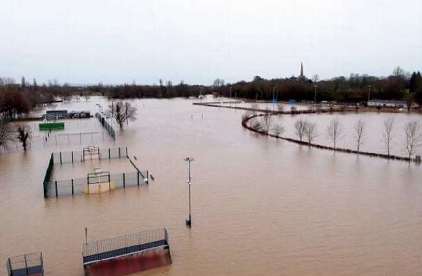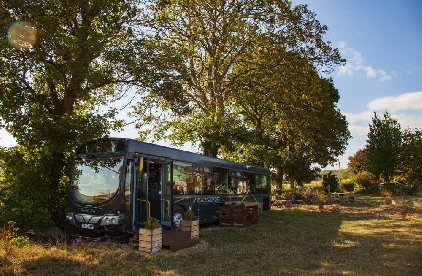
Beavers “are being employed” to help prevent flooding in the Forest of Dean.
Civic chiefs considered a report last week which looked at the lessons learnt from the flooding caused during Storm Bert in Lydney during November 2024.
Around 50 homes were flooded after the River Lyd burst its banks as the Severnside town received a month’s worth of rain in two days.
Forest of Dean District Council discussed the learning from the multi-agency emergency response to Storm Bert at the overview and scrutiny committee meeting on July 17.
Councillors were told of the efforts being made to naturally slow the water flow upstream from Lydney.
And it was revealed the semiaquatic rodents are playing their part in the flood prevention plans.
During the debate Councillor Trevor Roach (G, Mitcheldean, Ruardean and Drybrook) asked if council officers had considered introducing more beavers to help with the issue.
“With handling the waterflow higher up from Lydney, could we not employ beavers on the pay roll and ask them to take care of log jam?” He asked.
James Blockley, Gloucestershire County Council’s principal flood risk management officer, said that was already being done in partnership with Gloucestershire Wildlife Trust and Forestry England.
“We’ve got two captive beaver releases in the Forest of Dean,” he said.
“The most recent one was at Perry Hay. Gloucestershire Wildlife Trust are just coming to the end of an extensive consultation on wild beaver release.
“One of the benefits of the work we are doing with water course renaturalisation is we are creating habitat that is ideal for beavers.
“So, it’s one of the valid tools in the box.
“The beavers most recently released at the Perry Hay enclosure are doing well.
“They are creating amazing structures and it is a really good way of demonstrating to people what it might look like if they were wild released.”
Mr Blockley said seeing those beavers being released was one of the proudest moments of his career. “It was amazing,” he said.
Beavers were first introduced in the Dean by Forestry England near Lydbrook in 2018 to improve the biodiversity of the area and to slow the flow of water through Greathough Brook in times of heavy rainfall.
Upon release they began to cut down trees immediately to access food and to provide material to build dams and lodges, according to Forestry England.
After the sad loss of the female beaver, a new partner was introduced to the male and two kits were born in April 2023. In 2024, another two kits were born.
Then in May 2024, a second pair of beavers, one from Scotland and another from Devon were released at the Perry Hay near Mallards Pike.
The idea is they will build dams to help improve the wetland habitat.


 Plans for holdiday accomodation on bus
Plans for holdiday accomodation on bus
 Changes to number of EV chargers at Magor Services
Changes to number of EV chargers at Magor Services
